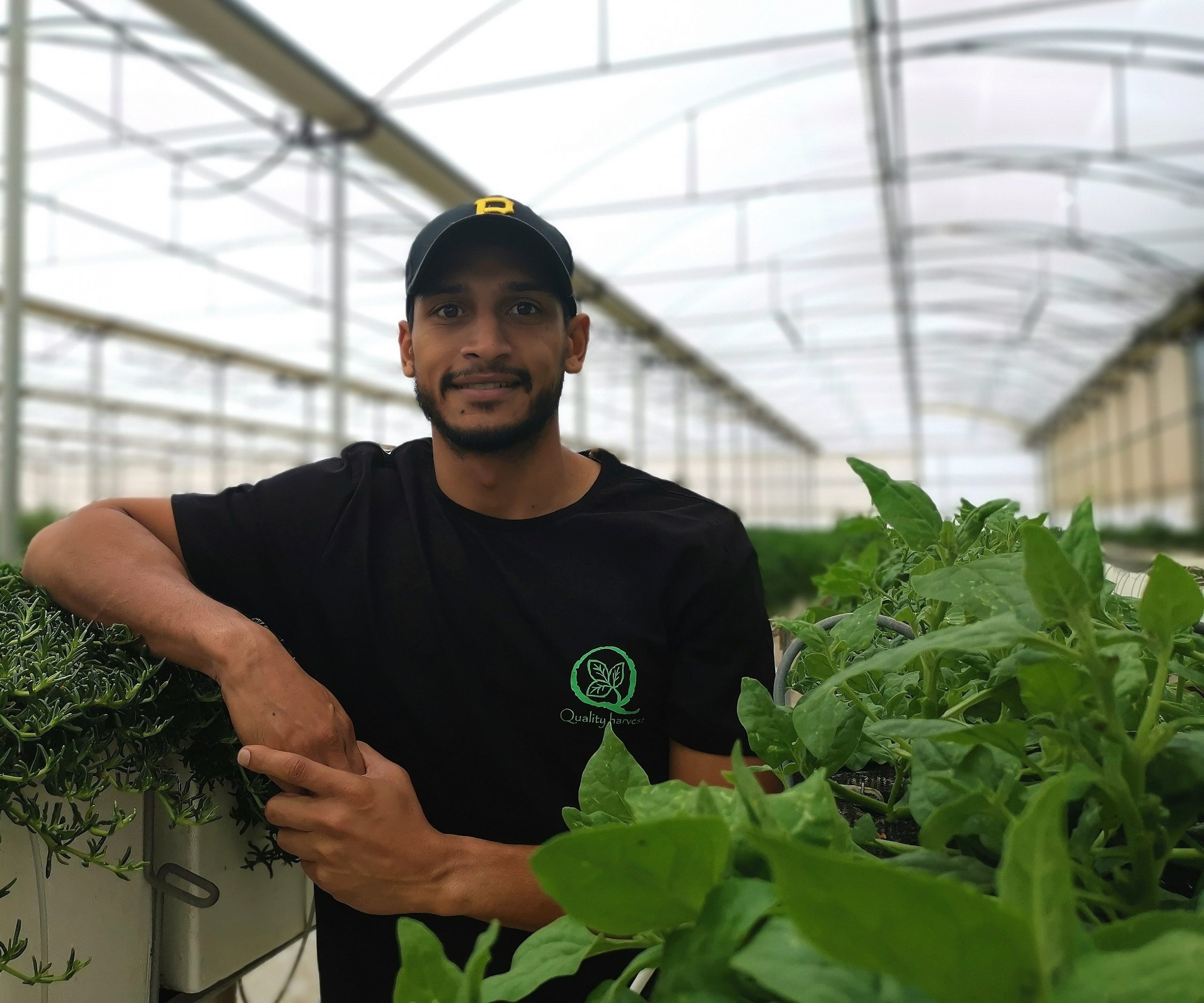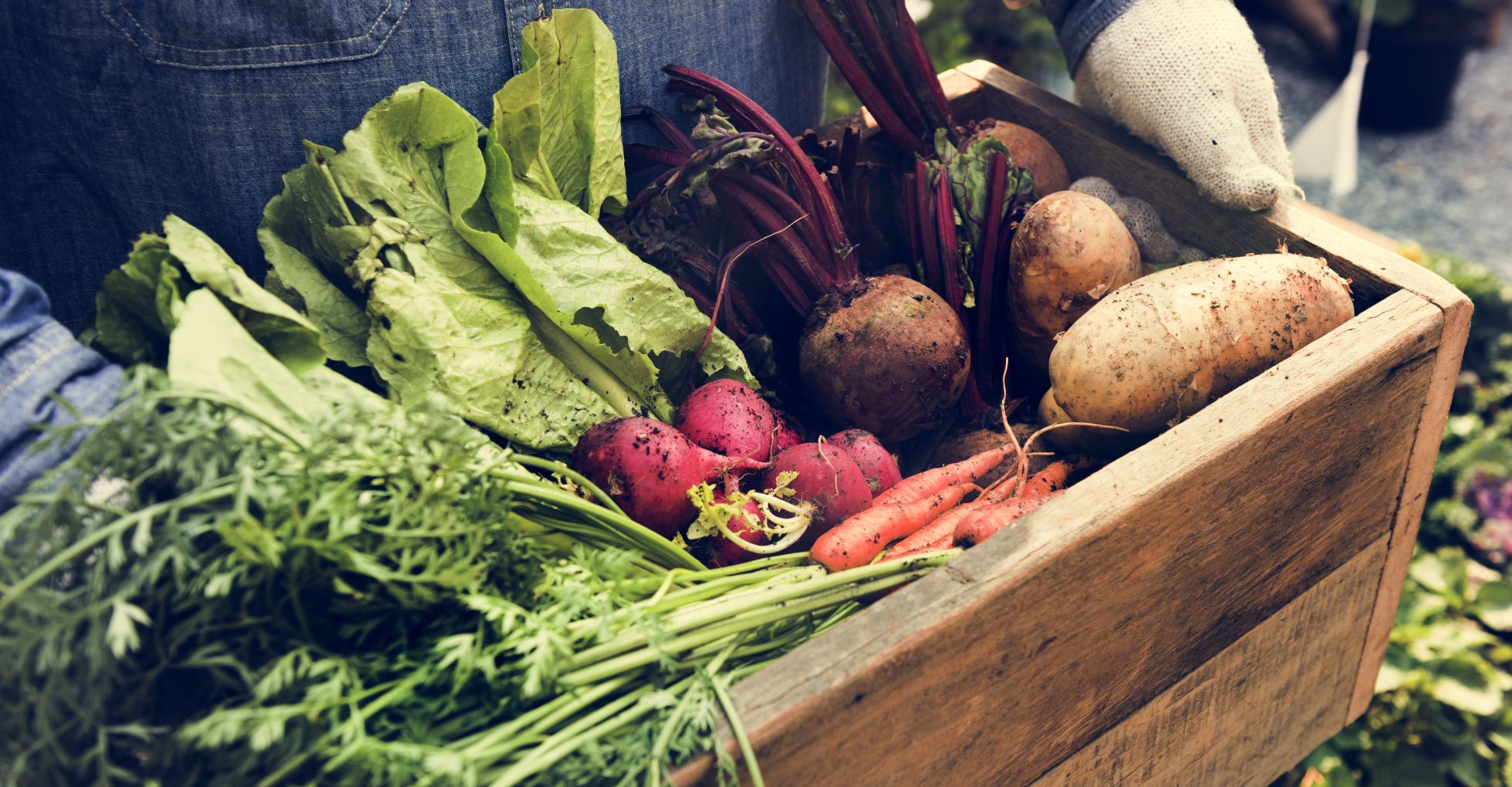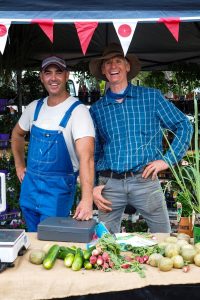Weed management in onions: winter cover crop trials
16 May 2021
Quick chat with Marlon Motlop
20 May 2021Growers: Bluey Stoldt and Mike Scott
Works at: Organic Ag
Bluey Stoldt and Mike Scott are the backbone behind Organic Ag, an organic fruit and vegetable farm and local community retailer based in Darwin. VegNET – Northern Territory Regional Development Officer Simone Cameron spoke to the pair about their involvement in the horticulture industry, the challenges it presents and what lies ahead for the business.
Please give a brief overview of your business/farm and the produce that you grow?
Formed in 2017, Organic Ag is a 33-hectare organic farm located at Middle Point in the Darwin rural area.
We are entering our fourth year of production at the farm where we produce upwards of 25 different seasonal crops to ensure we provide a great variety of fresh fruit and vegetables every week. This produce includes melons, salad and herb crops, cucumbers, zucchini, various root crops, tomatoes, eggplant, corn, onions plus other seasonal crops.
Our growing season is restricted to the months of May-October. During our dedicated dry season months, we have introduced other certified organic farm produce – direct produce from like-minded interstate growers who provide us and our valuable customers with the best seasonal organic products on the market all-year round. Through this model, Organic Ag has become more than just a local organic farm – it is now a farm direct organic retailer to across the local community.
How did you become involved in the vegetable industry?
We have been involved in the horticulture industry for many years. It is from the wet/ dry tropics where we have drawn most of our experience from, including Darwin and Kununurra in Western Australia.
Over the years, we have seen the increasing challenges of declining soil health and a strong industry focus on factory farming models or rather large scale commercial conventional enterprises. We believe that chemical dependency in tropical agriculture is out of control and the efficacy of this conventional approach continues to decline.
For us, there is no other way other than organic. We decided to take on the challenge to see if there is another option for industry and to bring some joy back to horticultural production and in turn, bring back this joy to our customers. Our passion is soil health, community health, personal health and giving our customers the best product in Australia.
What challenges do you face as a vegetable grower? How do you meet these challenges or try to overcome them?
The increasing effects of climate change in the tropical north and the intense build-up of insects in our crops are always a challenge. Therefore, we focus on biodiversity and improving our soil through natural fertilisers, cover crops, compost and no tillage is so vital to our farm and business moving forward. Healthy soil provides us with the best defence system to combat these challenging environmental and climatic conditions.
Our extremely short dry season provides us with very favourable conditions to grow our crops. But it is short (May-October) and is preceded by a wet season that has become increasingly unpredictable, and a build-up that is getting hotter and hotter every year. Understanding the seasons and how to best manage our crops within these parameters is something we are learning every year.
What new innovations, research and or practices has your business implemented recently?
We have been looking to farm in an alternate way. We are familiar and conditioned to using large tractors, big instruments and other technologies to become more efficient. We have chosen instead to grow smaller areas, a broad range of crops and staggered seasonal plantings. The question has been, “how do we become efficient in this scaled-down model?” And in doing so, we are getting back to using push planters, push weeders and harvesters. This has been extremely fun and rewarding.
Within the business itself, we have moved a lot of our sales to a door-to-door online delivery service. We dovetail this with a delivery app that plots out our best route for the driver.
Innovation and improvements in that part of the business has been a must. It is something we are extremely proud of as our previous experience in this area was next to none. We are ultimately driving the paddock to plate model here in the Top End.
What do you think is vital for the vegetable industry right now?
The vegetable industry in the tropics has to focus on building our soil health and increasing biodiversity of crops that are grown. We also understand that biosecurity and biodiversity play a huge role in the farming industry and need to be balanced together. There needs to be more learning around how to grow crops with a significant focus on sustainable, local and self-sufficient crop production.
What is your proudest achievement as a vegetable grower?
Right now, the last three years has been the hardest but our proudest achievement. Making the decision to step off the cliff face and ‘buck the norm’ to grow organic produce in Darwin was a huge unknown. One that initially drew comments of concern, yet here we are doing it and doing it successfully.
We are achieving outside of what is considered the ‘conventional’ approach, and that is something we are immensely proud of. To be able to provide our local community with clean, healthy, fresh produce is most rewarding. There is a genuine respect, appreciation and dedication from our customers that we do what we do. More consumers are chasing that ‘story’ of where their food comes from.
Do you have future plans for the farm and what may that look like?
We will build a sustainable farming system that other people can learn from and then replicate. We need more organic farmers in the area to help us build the industry and to make a real difference.
The need to engage our community in food production – and eating and living better – is something that we see as our responsibility. We must get the public engaged in farming. For too long, the farm gates around the world have been locked shut to the public. And we ask these growers, “what have you got to hide?”. On-farm field days, school presentations, paddock to plate events, composting and gardening seminars – so our community can learn from us – is just the beginning.
A co-operative of farmers in the Top End focusing on quality, education and a strong local commitment would be such a powerful partnership.
We would love to collect waste from local food outlets, so we can recycle and reuse waste through composting and feeding the crops sustainably. Growing the food, supplying the community, collecting the waste, recycling the waste, reusing this waste, re-energising the soil growing new crops and start all over again – this is what we call farming. Nothing is more satisfying and rewarding.


